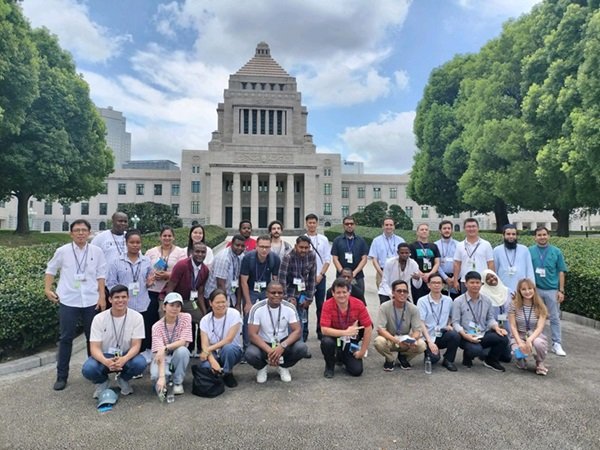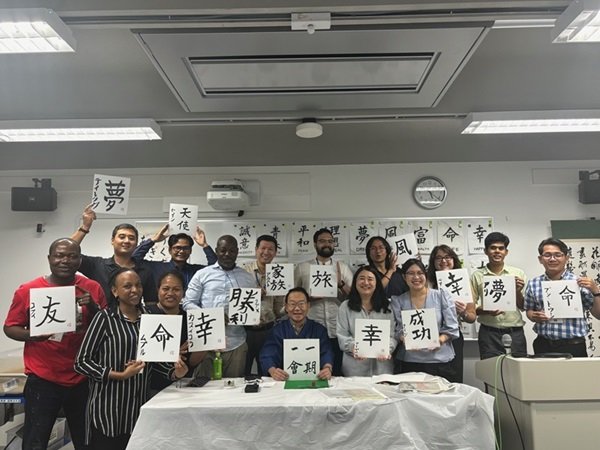Latest News
2024.10.01 Announcements
The Japanese Development Experience: A Learning Program for JICA Scholarship Fellows
Starting from early August to late September 2024, GRIPS held four rounds of its intensive summer program, “Understanding the Japanese Development Experience.” This program, designed for Japan International Cooperation Agency (JICA) scholarship fellows, was organized by GRIPS in collaboration with JICA. The participants were students, mainly graduate students, from a number of universities in Japan. The rich program content included lectures, a study tour, a cultural event, group discussion and presentations. The program is intended to give the participants a broad perspective on the Japanese modernization process, and to encourage them to adopt a multi-faceted approach to engagement with the topics. The program was held at GRIPS, Tokyo.
There were about 30 participants, diverse in region, career and specialty, in each round of the program. In the first half of the program, they attended a comprehensive series of lectures on the history of Japanese modernization.
The lecturers were:
Prof. Andrea Pressello, GRIPS, Japanese modern history;
Prof. Kaoru Iokibe, the University of Tokyo and Adj. Lecturer Dr. Amiko Nobori, Keio University, Japanese political history;
Associate Prof. Yohei Kojima, the University of Tokyo and Prof. Tadashi Yokoyama, GRIPS, Japanese economic history.
Special lectures were given by:
Dr. Shinichi Kitaoka, Special Advisor to the President of JICA (Visiting Professor of GRIPS);
Dr. Nobuko Kayashima, Senior Research Advisor, JICA Ogata Sadako Research Institute
for Peace and Development;
Prof. Emeritus Takahiro Fujimoto, the University of Tokyo, Professor, Senior Researcher, Institute for Business and Finance, Waseda University:
Prof. Emeritus Kiyotaka Yokomichi, GRIPS.
For the field trip, the participants visited the National Diet Building, Yokohama Port Museum and Sail Training Ship Nippon Maru, Kanagawa Prefectural Museum of Cultural History and Saitama Industrial Technology Center. The participants also had meaningful experiences of Japanese tea ceremony and calligraphy to deepen their understanding of traditional Japanese culture.

The National Diet Building Study Tour
Cultural Event : Japanese Tea Ceremony

Cultural Event : Japanese Calligraphy
In the second half of the program, the participants applied the knowledge and information they had acquired in the lectures to their exchanges in group discussions about Japan’s development experience and about the lessons that can be learned from it. On the last day they made group presentations expressing their ideas about those topics and their views on some of the challenges that Japan is currently facing.
The participants had some unique and insightful experiences in the program. The group membership was rich; the participants, from Africa, South America, Asia, Middle East and Europe, had diverse professional backgrounds and graduate school specialties (including social sciences and engineering). That variety was reflected in the wide range of opinions and perspectives voiced in the group discussions. Although the program was only five days long, the participants had a precious opportunity to gain a deeper understanding of Japan from various viewpoints—an important takeaway.
We hope that in this program the participants gained some insights that they can apply to their work and to the development of their countries—and that will enable them to contribute toward the development of ever stronger relationships between their countries and Japan.
Closing Ceremony





